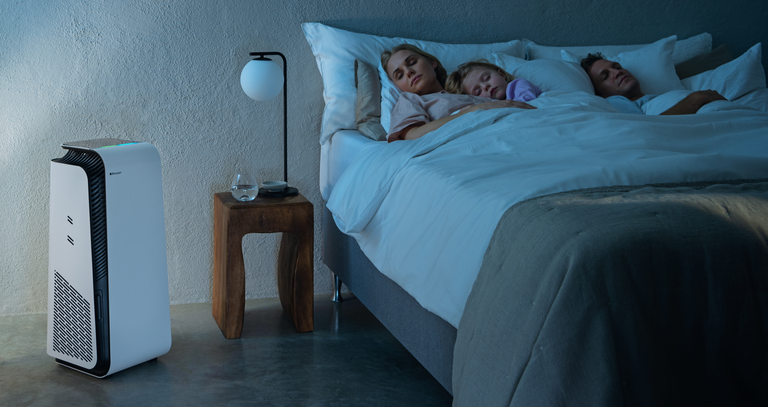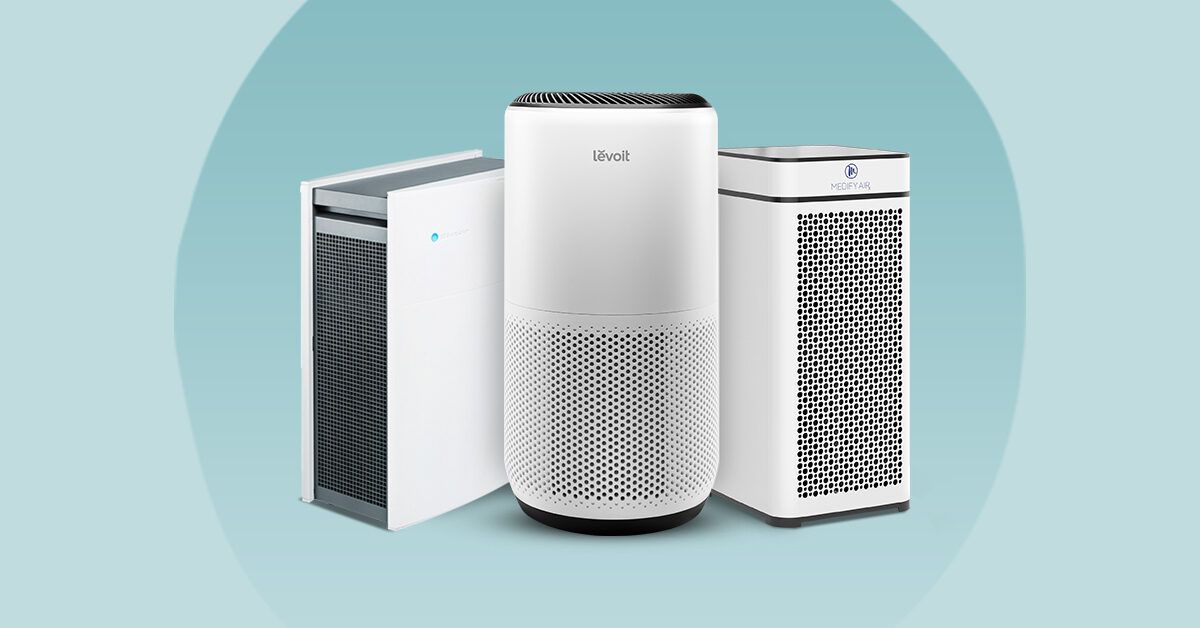Featured
Table of Contents
- – Understanding Allergies and Triggers
- – Can Air Purifiers Aid with Allergies?
- – The Science Behind Air Purifiers and Allergies
- – Are Air Purifiers Right for You? Variables to...
- – Maximizing Air Purifiers for Allergies
- – Beyond Air Purifiers: A Multi-Pronged Techniqu...
- – Living a Breath Easier Life with Allergies

For allergy sufferers, spring blooms and fluffy animals can bring even more sniffles and sneezes than delight. Interior irritants like allergen, animal dander, and pollen can damage your respiratory system, leaving you really feeling miserable. Air cleansers are frequently touted as a service, encouraging cleaner air and relief from allergic reaction signs and symptoms. Are air purifiers genuinely worth the financial investment for allergic reaction sufferers? This comprehensive guide checks out the scientific research behind air cleansers, their effectiveness for allergies, and the variables to think about when making a decision.
Understanding Allergies and Triggers
To recognize the role of air purifiers, allow's very first explore allergic reactions and their triggers:
- The Sensitive Feedback: Allergies occur when your immune system panics to a safe material, like pollen or allergen. This reaction sets off the release of histamines, causing allergy signs like sneezing, coughing, scratchy eyes, and a dripping nose.
- Typical Irritants: Indoor allergens consist of dust mites, pet dander, mold spores, pollen that wanders inside your home, and also roach irritants. These air-borne bits can aggravate your air passages and cause allergy signs.
Can Air Purifiers Aid with Allergies?
Air cleansers work by reeling in air, removing contaminants, and releasing cleaner air back into the area. Below's exactly how they can possibly profit allergic reaction victims:
- Trapping Irritants: HEPA (High-Efficiency Particulate Air) filters, a common type used in air cleansers, are extremely efficient at catching air-borne irritants like dirt termites, pet dander, and plant pollen. By eliminating these triggers from the air you take a breath, air purifiers can assist decrease allergic reaction signs and symptoms.
- Improved Air Quality: Air purifiers can additionally get rid of various other irritants from the air, such as smoke, dirt, and volatile organic substances (VOCs) This general enhancement in air quality can be valuable for allergy sufferers that are sensitive to these added triggers.
The Science Behind Air Purifiers and Allergies
Researches have revealed that air cleansers can be valuable in reducing allergic reaction symptoms. Here's a look at some vital research searchings for:
- A 2019 review published in the journal "Present Allergy and Bronchial asthma Records" concluded that air purifiers with HEPA filters can be reliable in lowering allergy signs and symptoms and enhancing top quality of life for individuals with allergic rhinitis (hay high temperature)
- A 2018 research published in the journal "Annals of Allergic Reaction, Bronchial Asthma & Immunology" discovered that making use of an air purifier with a HEPA filter in the bedroom significantly lowered dirt mite allergen levels and enhanced sleep high quality in individuals with bronchial asthma.
Nevertheless, it's essential to note that research also suggests some constraints:
- Air Purifier Protection: Air cleansers are most reliable in the room where they are placed. Their influence on irritants in various other parts of your home may be marginal.
- Seriousness of Allergies: While air purifiers can aid, they might not be a total service for serious allergies. Medicines and other allergy management approaches may still be needed.
Are Air Purifiers Right for You? Variables to Consider
Below are some vital factors to take into consideration when making a decision if an air purifier is worth it for your allergies:
- Intensity of Allergies: If your allergies are moderate and well-controlled with medication, an air purifier may not be needed. Nonetheless, for those with modest to serious allergies, an air purifier can be an important device in handling signs and symptoms.
- Kinds of Irritants: Take into consideration the major triggers for your allergies. Air purifiers are most reliable for airborne allergens like allergen, family pet dander, and pollen. They might not be as useful for allergens like mold that expand on surface areas.
- Way of life and Environment: If you have pet dogs, stay in an area with high plant pollen counts, or have worries regarding interior air top quality, an air purifier can be valuable.

Maximizing Air Purifiers for Allergies
If you make a decision to spend in an air purifier for allergic reactions, below are some pointers for optimizing its performance:
- Choose a HEPA Filter: Try to find an air purifier with a HEPA filter certified to capture fragments as small as 0.3 microns.
- Right Size for the Room: Guarantee the air purifier has a Clean Air Shipment Price (CADR) that appropriates for the size of the area you prepare to utilize it in.
- Placement Matters: Position the air purifier in the area where you spend the most time, such as your room.
- Routine Filter Maintenance: Change HEPA filters according to the maker's directions to preserve optimal efficiency.
- Combine with Other Strategies: Air purifiers are not a one-size-fits-all solution. Integrate them with various other allergic reaction monitoring strategies like medicine, normal cleaning, and allergen-proof bed linens.
Beyond Air Purifiers: A Multi-Pronged Technique to Allergic Reaction Monitoring

While air purifiers can be a useful device in your allergic reaction toolbox, they are not a magic bullet (If you're looking to buy an Air Purifier then Air Cleaners Australia is the best destination.). A comprehensive strategy that combines air purification with various other strategies is crucial to achieving long-lasting allergic reaction alleviation. Below are some extra approaches to think about:
- Drug: Antihistamines, decongestants, and nasal corticosteroids, recommended by your physician, can properly handle allergy signs and symptoms.
- Allergy Testing and Immunotherapy: Identifying your specific allergens through allergic reaction screening can lead the way for immunotherapy, a treatment that aids desensitize your immune system to allergens over time.
- Air Top Quality Administration: Routine cleaning with a HEPA-filtered hoover and allergen-specific cleaning products can dramatically minimize dust mites, pet dog dander, and various other irritants in your house.
- Controlling Humidity: Mold grows in humid settings. Using a dehumidifier can help regulate moisture degrees and avoid mold development, an usual interior allergen.
- Way of life Adjustments: If you have hatreds pollen, staying inside your home during top pollen periods and showering after hanging around outdoors can assist minimize direct exposure.
- Bed linen and Surfaces: Enclosing cushions and cushions in allergen-proof covers can substantially decrease allergen direct exposure. Regularly washing bed linen in warm water aids remove allergens.
Living a Breath Easier Life with Allergies
Remember, managing allergies is a continuous process. By comprehending your triggers, executing a multi-pronged approach, and potentially including an air purifier into your technique, you can considerably minimize allergic reaction signs and symptoms and breathe less complicated.
Extra Factors To Consider:
- Consulting a Doctor: If your allergies are severe or not well-controlled with medicine and lifestyle changes, get in touch with a specialist for personalized recommendations.
- Air High Quality Monitoring: Consider using an air quality display to track allergen degrees in your house and adjust your management techniques as necessary.
- Long-Term Financial investment: A top quality air purifier can be a long-lasting investment in your health and wellness and well-being.
By taking a positive approach and taking on a mix of these approaches, you can produce a healthier and allergy-friendly environment, permitting you to take pleasure in a breath less complicated life.
Table of Contents
- – Understanding Allergies and Triggers
- – Can Air Purifiers Aid with Allergies?
- – The Science Behind Air Purifiers and Allergies
- – Are Air Purifiers Right for You? Variables to...
- – Maximizing Air Purifiers for Allergies
- – Beyond Air Purifiers: A Multi-Pronged Techniqu...
- – Living a Breath Easier Life with Allergies
Latest Posts
5 Simple Techniques For Are Yeti Rambler Tumblers Designed For Dishwasher Use?
Is Dishwashing Yeti Ramblers Recommended? Can Be Fun For Everyone
5 Easy Facts About Is It Safe To Automate Cleaning For Your Yeti Rambler? Explained
More
Latest Posts
5 Simple Techniques For Are Yeti Rambler Tumblers Designed For Dishwasher Use?
Is Dishwashing Yeti Ramblers Recommended? Can Be Fun For Everyone
5 Easy Facts About Is It Safe To Automate Cleaning For Your Yeti Rambler? Explained